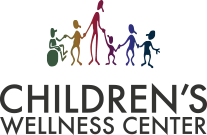Urinary Tract Infections
Urinary tract infections (UTIs) are infections of the bladder, kidneys, or both. They are caused by bacteria that spread from fecal (bowel movement) material. Without proper treatment, UTI’s may lead to kidney damage. It is important to call our office as soon as possible if you suspect your child may have a UTI.
The main symptoms of UTI’s are pain and/or burning with urination, frequent urination, wetting accidents, abnormal smelling urine, nausea and vomiting, and fever. Fever occurs when the infection has spread to the kidneys and may be the only symptom in an infant or young child. These fevers are usually high grade (over 104) but may be lower initially.
The risk of UTI is higher in girls than boys. Boys who get UTI are most often under 3 months of age and uncircumcised. Factors that increase the risk of UTI include constipation, poor hygiene, and urine-holding behaviors (waiting till the last minute to urinate and then rushing to the bathroom). UTI’s may be the result of a problem with the urinary system, such as reflux (backward flow of urine toward the kidney when the bladder squeezes at urination).
The diagnosis of UTI depends on a properly collected fresh urine sample, which we can collect and analyze immediately at our office. All children suspected of having UTI are treated with antibiotics. Please schedule an appointment right away if you suspect that your child may have a UTI.
